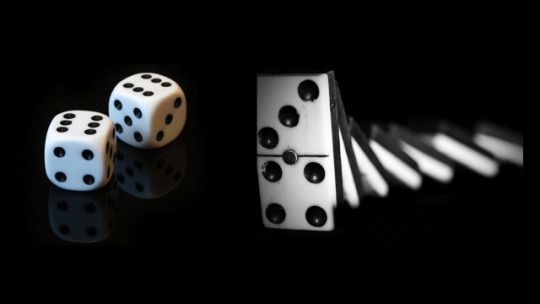#I don't have a good explanation for independently seeking the answer though
Explore tagged Tumblr posts
Text
That does explain why Google couldn't just translate it on one go. It did do that. It perceived everything except "fakir" as French and gave "rest of the ____". Fakir by itself it took as Turkish and gave "poor". I got my translation by splicing those translations together. Together they made sense and I didn't investigate it further






"Le repos du fakir" (2003), Stéphane Argillet and Gilles Paté
#I wanted to know the meaning of the title because the title is part of the piece#I wanted to understand the piece thoroughly#I don't have a good explanation for independently seeking the answer though#I saw foreign text and my first thought was to translate it#and what it gave me checked out-- made enough sense not to cause me to question the finding#so I stopped there because it looked right#I apologize for spreading misinformation
50K notes
·
View notes
Text
Free Will and Determinism - The Context

So getting back onto the well worn weatherbeaten path of the whole free will vs determinism debate that's been going on in philosophy seemingly forever, and has been happening on and off in the online philosophical debate community over the past 10 years, we pick up the trail at the point where it stands to reason that one should rightfully demand proof of either of these templates. And that's the thing. They are templates? Ok, but templates of what. Where are free will or determinism taking place? Are these functional aspects of an external system, or an internal system? Unfortunately, from what I have gathered, it seems to be an argument primarily concerned with the workings of a supposedly external system, which means there are underlying assumptions at play in the argumentation that have staged the discourse in a biased framework.
So, even though it shouldn't be overlooked that free will and determinism are just abstractions in the mind and nothing more, we'll go ahead and address the issue around the basis that: what's called reality, may be some type of objectively existing medium wherein materials and forces, all very nice spooky ambiguous externalizations to be sure, are operating in some kind of systemic function that expresses itself via a paradigm of either free will or determinism... or maybe some combination thereof, such as compatibilism. Can any solid evidence be presented to disprove any these templates? Maybe, and in philosophy it seems we are often charged with this type of challenge, but really, the question should be asked: WHY are we expected to disprove them? Are not free will, determinism and compatibilism ideas that are carrying the burden of proof here? Why are these positions automatically considered established templates if they are not otherwise overcome in argumentation? Free will and determinism haven't been proven to be truths by any measure. So free will or determinism prevailing in discourse would be contingent upon an ASSUMPTION that they are inherent aspects of an objectively existing external world, which is a leap of faith in itself, as every and any conclusion made by way of philosophy, logistical reasoning, or scientific methodology, whether deductive or inductive, dogmatic or empirical, are all the end result of the mental facility of an existential agency. Assuming the existence of a external objective medium, that has some complex system of functions that either deterministically govern reality, or provide the freedom to act according to a will, are intellectual narratives based on the face value of appearances perceived in an existential context, which, by itself, is not strong enough grounds to declare free will or determinism as self evident axioms. Awareness of sensory data is a far more sure thing, and needs no evidence or intellectual narrative, as it is already the case first hand. So wherein do these abstractions warrant an assumption that begs to be disproved?
And by the way, while we're at it, on a side note, what exactly IS proof, anyway? We often ask for it, but rarely bother to examine what it actually is, or more aptly stated, what it achieves... More often then not, proof, or evidence, are just distinctions of patterns in sensory information that seem good enough to satisfy a underlying concept held about reality, of which, is usually the assumption, or wish, that reality and the mind are not at all interconnected. And receiving such a minor proof is usually sufficient enough to justify the broader unfounded assumption. This is the constant game we are playing with ourselves: this addiction of the consciousness to always reinforce the desire for illusion to be real and actual, which in this case, means mind independent, so as to avoid responsibility, and hence assign power to some supposed aspect of reality imagined to be beyond awareness. This is the basis of the foolish conditioning that I am trying to deconstruct. A deconstruction that starts with the undeniable truth that a reality, no matter how you wish to define it, cannot exist without having a context; pure and simple. This is a foundational principle that serves to fortify the fundamental axiom of awareness, that which provides the framework for all foundational principles. To call the imagined externally existing medium the context here is low minded and short sighted, as it overlooks that which gives context to the externally existing medium. This is the first impact that shatters free will and determinism: as there is no such medium existing. For such a medium to exist means that it has to have form, and a location, neither of which can be demonstrated to be substantial, outside of the scheme that gives any such substance or location context, that is, awareness itself. To be an actually existing external medium, this medium would have to be a parameter that is either limited, unlimited, or both. Just by virtue of being recognized as a parameter, we have to go with the limited, as being unlimited would mean no beginning or end; the definition of the truly boundless... and to be boundless is to be literally without any parameter. If without a parameter, there can be no position, if no position, no existence, as previously outlined in the original concept about an objectified reality. So since it can't be unlimited, then it can't be both limited and unlimited, which leaves us only with it being limited. If this reality medium is limited, then it satisfies the definition of a parameter. Since it has parameters, then it has a beginning and an end, hence the existence of this medium comes from some type of non-existence, but non-existence cannot exist, otherwise it wouldn't be non-existence, hence existence, as an imagined independent medium, cannot really objectively exist. It's an illusion, of the awareness which gives all these facets their composition.
But this truth is ignored. Instead, the theories of free will and determinism both choose to assume that such a medium objectively exists, and feature a set of rules within this setting, which thereby serve as the foundation for the eventual rise of an awareness, the exact opposite of the truth. This is a common conclusion when science is put above philosophy, when in fact science is but a branch of philosophy. Again, when considering many of the common questions in argumentation that look to address classic philosophical dichotomies, such as infinity or the finite, order or chaos, and free will or determinism, one should not look past that which gives these aspects context. Same goes for our proposed answers and explanations. Reasoning, logic, and mathematics are just tools, not the reality. One should not overlook what give these tools foundation. Scientific models are helpful navigationally, but become restrictive when used as a means to impose obedience to a reification of our abstract systems of order and structure. Might this tendency may be more revealing of a personal proclivity? Yes indeed.
Sometimes it's hard to fathom just how deeply we are always consciously and unconsciously trying to obfuscate and circumvent the truth, but this is our predilection; to wit, our desperate willful craving for delusion over the truth. And using material science to try and justify this attachment is ideological laziness. A philosopher worth his salt doesn't invest too heavily in the face value of sense perceptions. A true philosopher will never point at standard, traditional, or mainstream conclusions and proclaim them to be the truth due to their blatant obviousness. This isn't even remotely philosophical. This is just jumping on a bandwagon. As I've said before, to always try to minimize reality down to a mundane triviality, by way of material reductionism, or the authoritative disambiguation of the intellect, are the negligent workings of a lackadaisical philosopher. This isn't a representation of an interest in the truth, this is just an appeal to popularity. If you are self conscious about standing in the truth for fear that the popular people will laugh at you, or that it will ruffle the feathers of the scientific establishment, then really, you should get out of philosophy. The truth is never going to be popular. Delusion is popular. Delusion is like a warm fuzzy bubble bath, whereas the truth is like a ice cold shower.
So this isn't even a matter of the issue being complicated, because its actually quite simple. It's a matter of people deliberately not wanting to have anything to do with the truth, for the truth doesn't validate the ego. So, for those who WANT to uncover the truth, could care less about what other people think, are not afraid to take responsibility, are ready to take on more power and accept the true nature of the empty self unconditionally, a simple rule of thumb will suffice: when trying to get to the bottom of a existential quandary, and identify the most fundamental underlying truth, always distinguish that which provides all else it's context. This is where you will find reality. The truth of this realization cannot be denied, only temporarily evaded with clever abstractions that seek to portray it otherwise. But this faulty portrayal is the result of an improper focus, as both free will and determinism are illusions, as they don't actually exist anywhere, other then in abstractions. To concentrate on them is to lose clarity and diminish lucidity. Instead, the focus of the attention should be directed towards the source of attention. This is where we will find the serendipitous tracks of Rene Descartes, and the sentiment of his perennial aphorism, "I think, therefor I am", still echoing in the wind. He didn't explore it much deeper then his own abstractions, but he was, at least, generally looking in the right direction. There's no need to convolute just to uphold the imagined integrity of faith based beliefs in free will or determinism. Cogito ergo sum, or "I think, therefor I am", if investigated deeply, reveals that the "I" IS the fundamental reality, not an externally existing independent medium, nor a contrived illusory identity that considers sensible concepts in ontological and epistemological terms. So, with, "I think, therefor I am", one must move deeper then the thinking.... Is there any assertion being made that awareness is void? If awareness is present, then how can it be shown to not be the fundamental reality, when in fact, it's the only thing providing the foundation for thoughts, sensible concepts, and paradigms to be considered 'objectively', in the first place? What about the pure intellect as the fundamental reality? NO. It isn't the pure intellect, as Descartes hastily concluded, and as most of us so intensely want to believe. The intellect is a tool of awareness... so how could awareness itself be stepped outside of and be intellectually considered? Who, or what, would be doing this exactly?... But wouldn't the "I" be relative only to a specific type of reasoning? Again: What is the underpinning of the reasoning? This issue is gonna persist for so long as one remains stuck on intellectual inventory. So, until it's clear that there has been an accurate discernment with what the "I" actually is... it doesn't follow that it can be equated to a paradigm where an "I" makes sense only relative to a reasoning, yet can still be nevertheless "stepped outside of" and considered with a different kind of reasoning. WHAT would be reasoning, outside of the creature that reasons? For that to even be possible, the "I" would first need to be realized for what it is. If reality is realized for what it is, then of course it necessarily follows that all of it's constructs, including knowledge, are dependent on it for their contextual significance. This is the basis for the irrefutable fundamental default axiom of existence. This is the truth of awareness.

0 notes